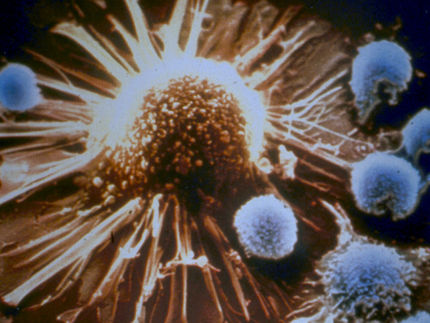immatics and Roche sign cancer vaccine and immunotherapy collaboration
Collaboration spans the discovery, development and commercialisation of cancer vaccines and other cancer immunotherapies in gastric, lung and prostate cancer
Advertisement
immatics biotechnologies GmbH and Roche announced a strategic research and development collaboration covering multiple cancer vaccines and immunotherapeutics.
The agreement will focus on the research, clinical development and commercialisation of a number of new tumour-associated peptide (TUMAP)-based cancer vaccine candidates and other immunotherapies in oncology, targeting primarily gastric, prostate and non-small cell lung cancer. The most advanced cancer vaccine candidate covered by the agreement is IMA942, for the treatment of gastric cancer, which is ready for phase I trials. Roche will be responsible for the clinical development and commercialisation of all of the immunotherapies generated by immatics as a result of this collaboration.
In parallel with the clinical development of IMA942 by Roche, immatics will conduct research on behalf of Roche using its XPRESIDENT® technology platform to identify novel and relevant TUMAP candidates for the development of cancer vaccines and other compounds targeting cancer peptide antigens, primarily in gastric, prostate and non-small cell lung cancer. The XPRESIDENT® discovery platform is to date the only known high-throughput research technology to directly identify, quantify, and prioritize cancer antigens recognized by T lymphocytes (type of white blood cell) based on the ability of the immune system to detect them.
Under the terms of the agreement, immatics will receive an upfront payment of $17 million and committed research funding plus potential milestone payments that could reach values in excess of $1 billion and royalties across three cancer indications, based on sales of the cancer vaccines and immunotherapies resulting from this agreement.
Most read news
Other news from the department business & finance

Get the life science industry in your inbox
By submitting this form you agree that LUMITOS AG will send you the newsletter(s) selected above by email. Your data will not be passed on to third parties. Your data will be stored and processed in accordance with our data protection regulations. LUMITOS may contact you by email for the purpose of advertising or market and opinion surveys. You can revoke your consent at any time without giving reasons to LUMITOS AG, Ernst-Augustin-Str. 2, 12489 Berlin, Germany or by e-mail at revoke@lumitos.com with effect for the future. In addition, each email contains a link to unsubscribe from the corresponding newsletter.






















































